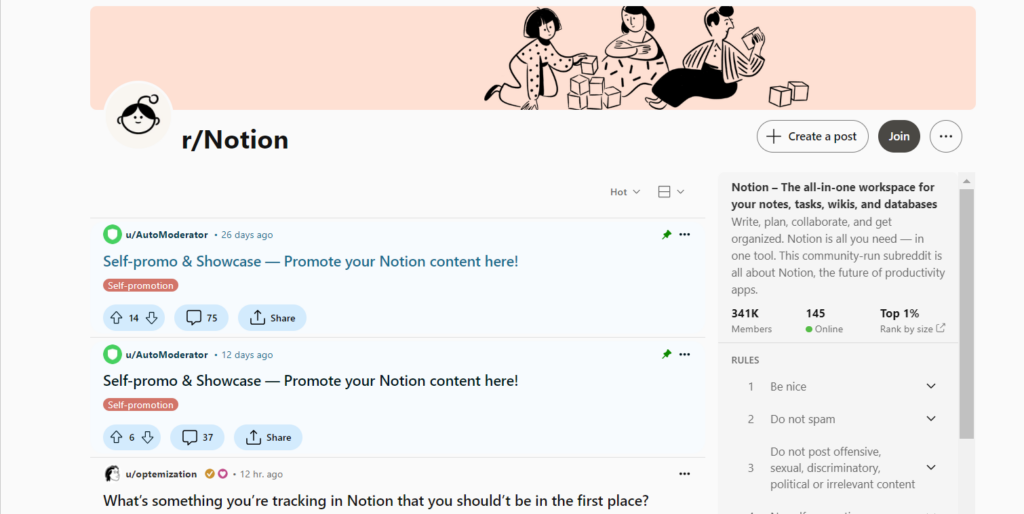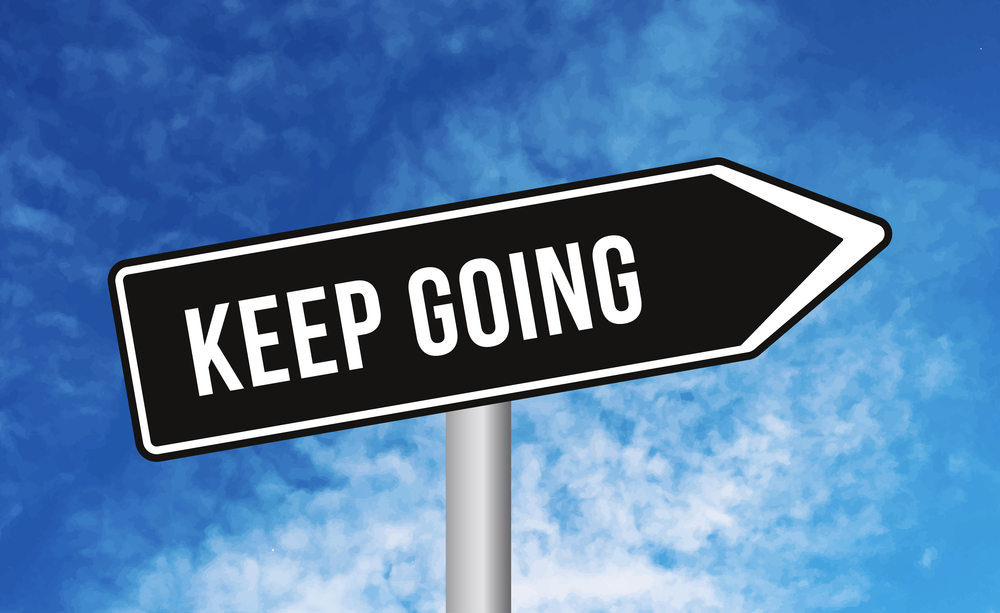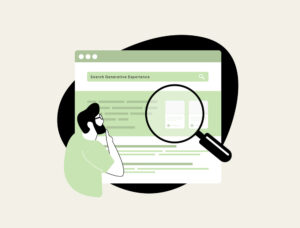In today’s digital world, having an online community can really boost your brand. But what exactly is it, and how can you make one that works?
Let’s break it down.
Let’s Talk About Online Communities

Think of an online community as a virtual space where people with similar interests come together. It could be a Facebook group, a Reddit forum, a Discord chat, or any other platform where users chat and share their experiences. Communities even happen in the comment sections of blogs and articles.
For brands, this is a great way to get closer to their customers, understand their needs, preferences, and expectations, and see how they can improve their products or services.
A great example of this is Notion’s sub-communities on Reddit, where the brand is using the power of forums to increase its presence online.

Notion’s online community
With a community of 341K members, users and members are spreading the word by sharing valuable content about the future of productivity apps, helping this way more people learn about Notion, or even building trust in new users who don’t know of it.
Check out some other examples of online brand communities.
And for deeper insights into online communities, another great resource is this report, “The Era of We and the Rise of Online Communities” created by the Global World Index, in association with Reddit.
How Communities Benefit Your Brand
A 2020 report by the community roundtable showed that creators who build online communities benefit from:
- Increased brand awareness
- Customer loyalty
- More sales
In fact this is true as creators or businesses can easily get “free feedback” based on users’ experiences and insights, helping them create digital products customers will love, or improve the existing ones.
We have covered all the details you need to know in our article on how community forums help you increase your brand, with real-life examples.
Getting Started With Building a Community
From the easiest steps to the more challenging ones, let’s explore what it takes to build a community online.
- Choose the Right Platform
First things first, you must decide on the platform where you’ll create the community, based on your target audience.
For instance, if you want to engage with a younger demographic, Facebook groups may not be the most suitable option. But a lot of other platforms, such as Reddit or Quora might be a great alternative to that.
- Study the Audience
If you already have an audience, whether in the form of subscribers, existing customers, or social media followers, this makes a great start. People who have already heard of your brand are more likely to join your community, and spread the word, bringing new people and more traffic there.
However, you need to always ask a few important questions:
“Who is my community for?
“How will my content help them?”
If you know who your community is for, it will be easier to pick the right platform to host it, based on your target audience.
Many creators choose free options like Reddit, Facebook, or LinkedIn groups. Some others pay for communities like Mightly Networks.
Whatever you choose, make sure it’s the right fit for your business and audience.
3. Start Engaging Conversations
When people come into your community, you are the one responsible to jumpstart conversations.
The content must be interesting and match your target audience’s interest. For example, if your followers love books, discussing topics related to travel or gaming wouldn’t resonate with them.
Come up with at least 2-3 conversations per week. Your role is to be the virtual host of the community you’re building and you have to maintain that role constantly.
Let’s suppose you have a community focused on books. To keep the audience active you might ask questions like:
“What kind of genres do you love”
“What’s your favorite book ever?”
“How many books do you read a month?”
Growing Your Community

You’ve got your community up and running. Now comes the challenging part. You’ve got to keep it growing.
It’s time to invite your first group of members.
Choose around 10 to 20 people you know and trust, like early customers or friends who are interested in what you’re doing.
Ideally, invite them to a quick Zoom call so you can present your idea and explain why your community is great for your idea.
Why did you create a community?
What is the vision you had, what inspired you? For example, if you own a book club, maybe you’d like to get inspired to read more, have regular book club discussions with international users and meet with authors around the world. No matter how small it is, make your audience feel like they’re investing in something big and inspiring, make them feel excited about your idea, and most importantly, highlight that the importance of your project goes beyond just a community group.
What have you as a creator done so far?
You most likely won’t have a wide portfolio of experiences if you’re at the starting point, and this is okay. Every creator or business starts from somewhere. Share your content ideas, and projects of collaborations, if any. And if not, be open and vulnerable about this. People love honesty and they are willing to assist if they feel their role is impactful.
How can you help the brand/idea be successful?
What is your audience’s role in this? Their insights, experiences, feedback, aspirations, and passions are important. After all, you cannot build a community without people. Make it clear that you need them to turn small milestones into large projects.
Walk Through the Call To Action

Last but not from the importance, inspire your audience to join and start interacting right away on the platform, such as by sharing your community, leaving feedback, or even leaving an introduction of who they are, where they’re from, and one fact about them that others don’t know. This is a great way to start interacting, as people love this type of easy-going, natural, and interesting conversation.
Some Other Valuable Tips
- Set a few ground community rules to keep things friendly and respectful. This will position your brand as professional, trustworthy, and serious in the eyes of the audience.
- Make joining easy and fun for new members. Encourage them to share their thoughts and make them feel welcome.
- Engage with the audience. This step is really important, otherwise, they can get bored and leave the community within a short time. Once they’re in, keep the conversation going. Ask questions, share stories, and make sure everyone feels included.
- Share fun content. This might include behind-the-scenes, new ideas, upcoming projects, games etc.
Keep the Momentum Going

Building a community is one thing, but keeping it going is another.
Maintaining what you’ve built requires consistency, and it’s important you repeat the same process once in a while. For example, you can try to find other people who might be interested in your idea and apply the same reasoning, or even experiment with other strategies to see if they work (like Q&As, games, polls, competitions, etc. depending on what your brand is about.)
Here are some helpful tips:
- Consider a moderator. Moderators are volunteers who ensure that people on the platform are interacting, and following the rules of the community. They also encourage engagement by asking questions and keeping users constantly active.
- Be sure to listen to what your members have to say and respond to their questions and ideas. Engage as often as possible to show interest and responsiveness.
- Set some clear expectations about when you’ll be around to chat and when you won’t. This will build trust towards users who know when to expect you to be active.
Final Thoughts
Creating an online community takes time and effort, but it’s totally worth it. By connecting with your customers and giving them a place to hang out, you’ll build a loyal following that’ll stick with you for the long haul.
So, why wait? Get started today and watch your brand grow like never before!


